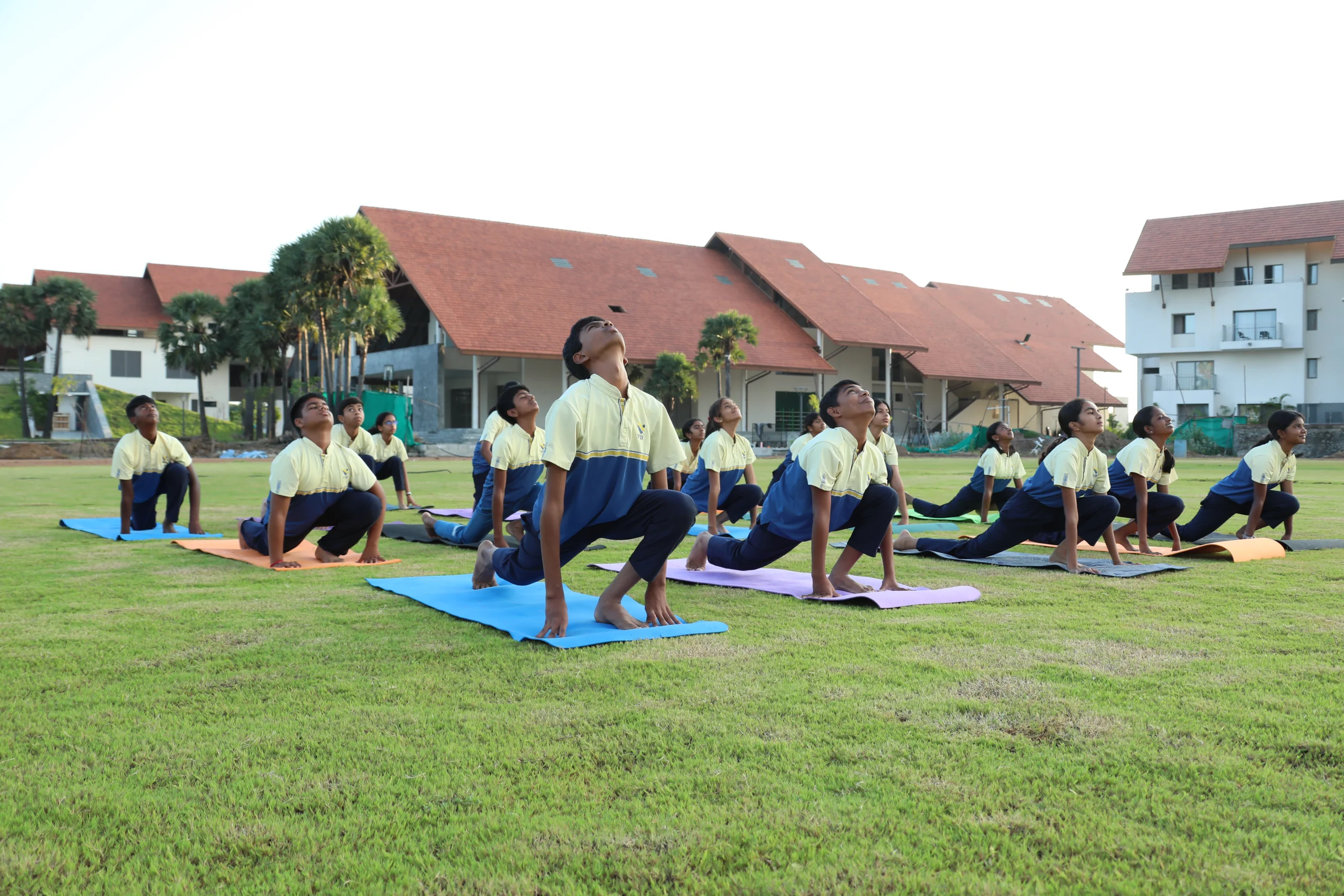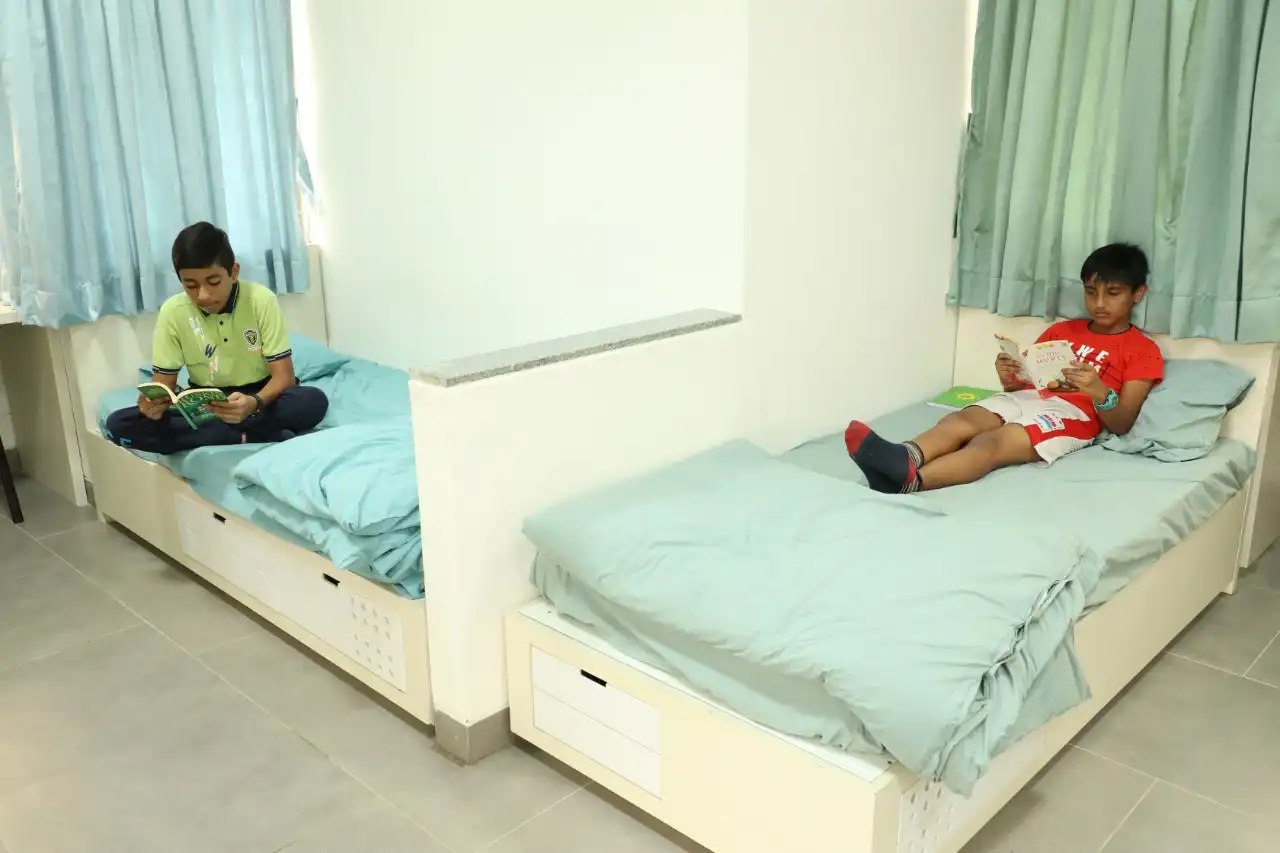Introduction
You have an idea to change your son/daughter’s school, but for now, consider the difference between residential school and day school. Both options offer different advantages, and the decision often depends on your child’s needs and family circumstances, such as fees and academic goals.
Here is the key guidance to help you clarify your doubts about which school options are best and ensure you make a well-informed choice.
Also Check – 10 Reasons Why You Should Choose Boarding School?
Top 8 Things To Keep In Mind When Choosing One: Residential School Vs Day School
Here is a list of some factors which can help parents decide whether they should go to day school or residential school
1. Academic Environment
One of the key considerations in the residential school vs day school discussion is the academic environment each offers.
- Residential Schools: These schools often provide a more broad educational experience. Students live on campus and are surrounded by staff and teachers. They frequently have a structured daily routine that includes study hours, meal time, and playtime, which can promote discipline and a strong academic atmosphere. Additionally, boarding schools like VIS Chennai may offer specialised programmes that enhance the learning experience.
- Day Schools: These schools typically allow children to return home each evening. While this setting may offer a less thorough academic experience, it suits families seeking a more balanced lifestyle. Students can complete their homework in a comfortable home environment and still be engaged in school and family life.
2. Social Development
Social development is a main factor in the residential school vs day school discussion.
- Residential Schools: Staying in a new environment allows students to develop strong bonds and interpersonal skills. The collaborative environment encourages teamwork and communication, essential skills for future success. Being part of a tight community can significantly enhance social skills and emotional intelligence.
- Day Schools: Day schools present children with socialisation opportunities in their local communities, allowing them to maintain strong family connections and friendships outside school. Despite spending fewer hours at school, children can engage in various extracurricular activities that develop social skills.
3. Independence and Life Skills
Another important consideration in the choice of residential school vs. day school is the level of independence students gain.
- Residential Schools: Attending a residential school often teaches children essential life skills such as time management, self-discipline, and responsibility. Living away from home nurtures students to guide daily life independently, preparing them for grown-up responsibilities.
- Day Schools: While students in day schools also learn independence, the experience may not be as intense as that boarding schools offer. However, day schools allow children to experience independence while being under the care of their families, which can ease the transition into maturity.
| Did you know? Educational Reforms:Governments may initiate reform schemes to integrate technology into education, which can affect residential and day schools. Programs promoting online learning and hybrid models can change the traditional teaching setup. |
4. Family Involvement
Parents meetings plays a meaningful role in education, influencing the residential school vs day school decision.
- Residential Schools: With students living on campus, parents might have less daily involvement in their children’s academic lives. However, many residential schools prioritise communication with families, providing regular updates on progress and opportunities for parents to participate in sports events, annual day programs, and family visits.
- Day schools typically offer greater opportunities for parent’s involvement. Parents can participate in school activities and parent-teacher meetings, kids sports day events and help with homework, encouraging a closer educational partnership.
5. Extracurricular Activities
Extracurricular activities should not be overlooked when considering residential and day school options.
- Residential Schools: Such schools often provide a wealth of extracurricular activities, from sports teams like cricket clubs, football teams, tennis courts to music classes, within a structured environment. This structure allows students to learn various interests without the limitations of daily travel.
- Day Schools: Many day schools offer full extracurricular options as well. However, commuting time limits student’s ability to participate fully. It’s essential to assess how to schedule flexibility needs with your child’s interests when it depends on your options.
6. Fees and Economic Considerations
The residential school vs day school decision is also concerned with financial importance.
- Residential Schools: These schools often come with higher school fees due to the complete amenities and support they provide, including accommodation and meals. Parents should assess their financial situation to determine whether the amounts / fee structure meet their educational standards.
- Day Schools: Generally, day schools may be more financially accessible, although fees vary widely. Parents should consider school and further expenses related to extracurricular activities, uniforms, and daily travel.
7. Location and Travel Time
Location may be helpful when selecting between residential school vs day school.
- Residential Schools: Residential schools offer an excellent solution for families far from world-class schools. By providing hostel/boarding campuses, these schools eliminate daily travel concerns and can fully accommodate student’s educational needs without travel limitations.
- Day Schools: Nearness to a day school can significantly affect daily routines. A nearby day school may provide families with a more manageable schedule, allowing more time for family interactions and reducing daily travel stress.
8. Individual Needs and Preferences
Lastly, it is important to consider your child’s individual preferences and needs when deciding between residential schools and day schools.
- Residential Schools: A residential school may be ideal for students aspiring for a deeper well-being experience, enhanced social interactions and independence. Parents should consider their child’s willingness to accept this level of independence and commitment.
- Day Schools: If your child succeeds in a familiar home setting or requires more family time and support, a day school might be the better option. Flexibility in structure can shape various learning styles and personality types.
Nurturing Excellence, Inspiring Futures. At VIS

At VIS, we expect a vibrant learning community where students are developed with the skills needed to succeed in a competitive and dynamic world. We aim to promote a culture of excellence, lifelong learning, and ethical leadership, ensuring our students shine as skilled and compassionate global leaders.
Beyond Education
Inter-School Competitions: Vellore International School nurtures students to participate in inter-school competitions. This enhances their skills and confidence and boosts a sense of community and sports spirit.
Focus on Mental Well-being: Physical activity is closely linked to mental well-being. Structured physical education and sports help reduce stress and anxiety, helping students concentrate better on their studies.
Conclusion
Ultimately, the residential school vs day school decision is dynamic, requiring careful consideration of the quality of education, social development, independence, family involvement, extracurricular activities, fees, location, and individual interest.
At Vischennai, we understand this complex journey and provide the necessary support and insight for parents searching for the best path for their children.
FAQs
1. How do I know which option is best for my child?
Consider your child’s personality, needs, and preferences while considering the factors discussed in this article. Seeking input from your child can also provide valuable things.
2. Are residential schools more academically stronger than day schools?
While many residential schools offer strict and well-structured academic programmes, it is essential to assess each school individually. Both types can provide excellent educational opportunities.
3. Can my child take up extracurricular activities at both types of schools?
Yes, both residential and day schools typically offer a variety of extracurricular activities; however, the options may vary based on the school, sports development and its location.
4. What’s the typical age range for students in residential schools?
Residential schools often fix students from ages 6 to 18, depending on the school, offering a broad education from primary through secondary levels.
5. How can I find the quality of residential and day schools?
Research more about school reputations and education standards, visit campuses, meet with teachers, check with former schoolmates, analyse academic outcomes like board exam results and read reviews from other parents to understand and make the right decision.




























